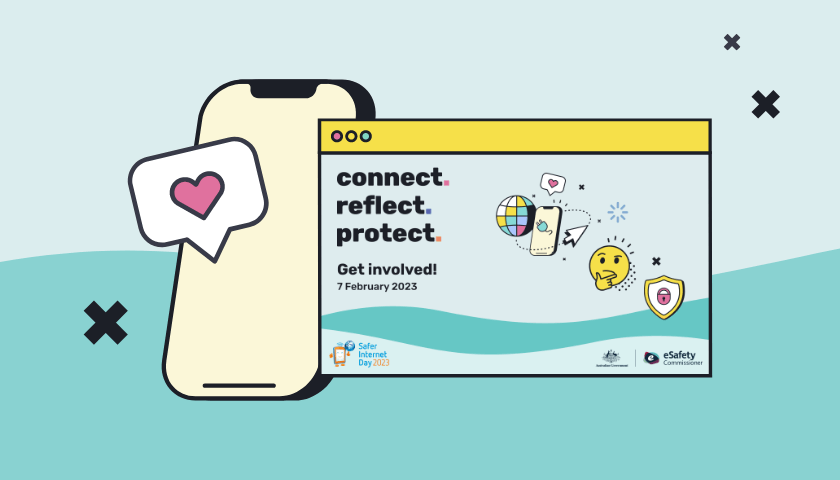The internet can be a place to learn new things and connect with loved ones. It’s a place to find new recipes, kick back with some sudoku or catch up on the latest news.
As helpful and fun as the internet can be, we also know it comes with more than its fair share of scams, cyberbullying and other thing we don’t want our kids to see.
With almost half of children being treated in a hurtful or nasty way in the past year alone, it is now more important than ever to talk to kids about being safe online.
What is Safer Internet Day?
Now in its 20th year, Safer Internet Day is a global initiative to raise awareness of online issues that impact our safety and wellbeing.
This year we’re being encouraged to connect, reflect and protect to make the internet a safer place for everyone.
Connect: Connect with others safely. Use social media in positive ways, keep apps and accounts secure.
Reflect: Before posting something, stop and think about how it might make others feel. Is what you’re saying helpful or constructive, or is it mean and derogatory?
Protect: We all have a responsibility to protect ourselves and each other online. If something doesn’t look or feel right, report it.
How can I get involved?
One of the best ways to get involved is to teach kids how to be safe online, as well educate yourself on the latest online safety news, new scam warnings and trends that might pose a risk to kids' safety.

Online safety tips for kids
Spend some time talking to your child about online safety. If you’re not sure where to begin, here are a few points to help you get started.
• It can help to learn a bit about where your kids spend their time online. Try to get a basic understanding of the games they play as well as any potential chat functions attached to them.
• Check your child’s privacy settings and have messages set to “friends only”.
• Kids should only follow and accept requests from people you know in real life.
• Make sure kids know how to block and report anyone who makes them feel unsafe or uncomfortable.
• Never post photos that could reveal personal information, like what school your child attends or hidden background information that can reveal where you live (street signs, house numbers or distinguishing features on your house).
• Encourage kids to let you know when someone is making them uncomfortable or if they feel like they’ve seen something they shouldn’t.
• Help kids understand what a scam can look like and to let you know if they get a suspicious email or message.
• Create an open, honest communication environment between you and your child, so they can come to you with any concerns or questions without judgement. This is vital, as sometimes kids won’t ask for help because they worry about being judged or getting in trouble.
Every day is Safer Internet Day. Simple things like keeping an eye on what kids are doing online, answering their questions and addressing any concerns can go a long way in helping kids become safer internet users now and in the future.

Share:
Feature Focus: School Mode
Teaching Kids About Their Digital Footprint